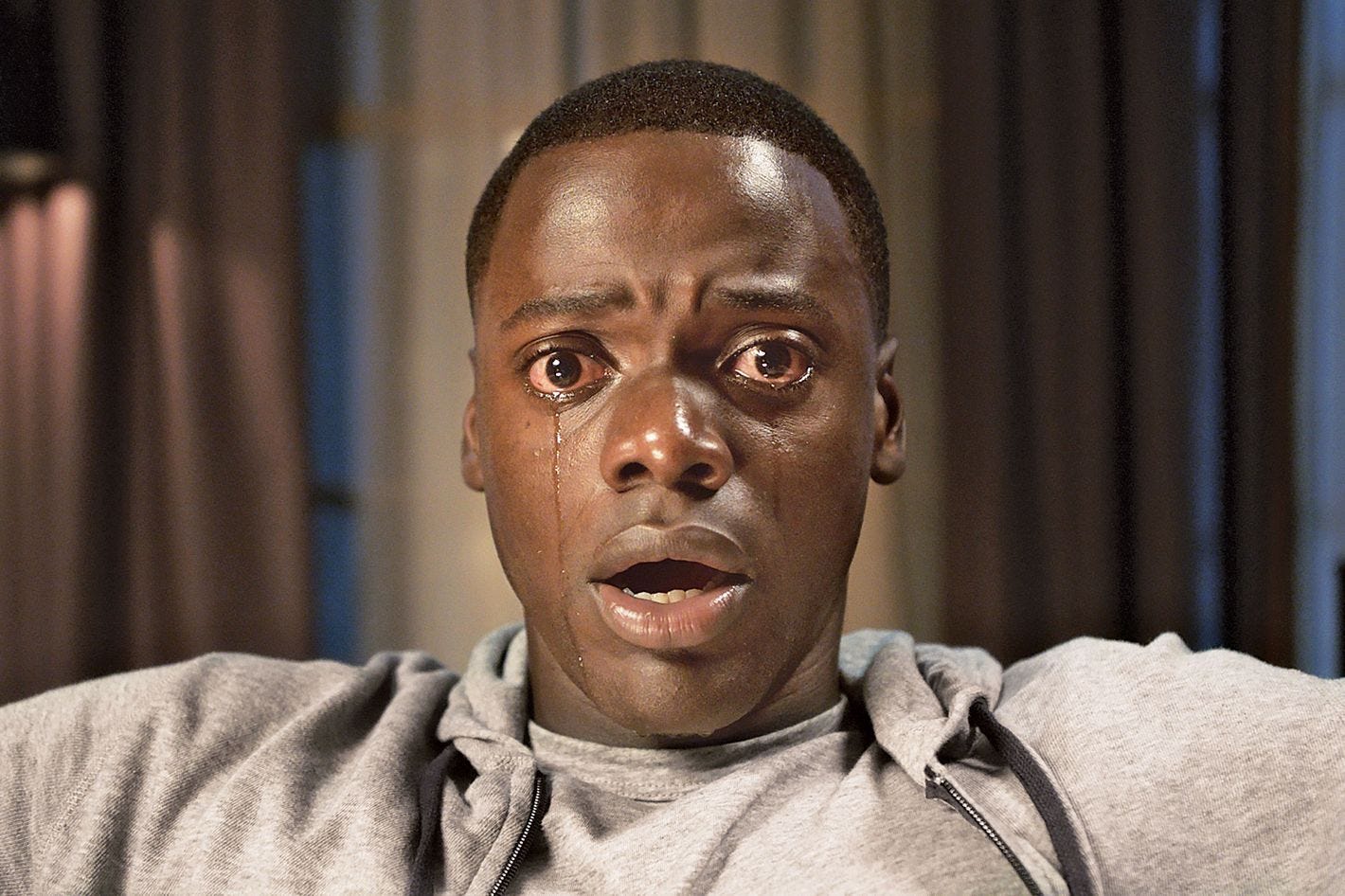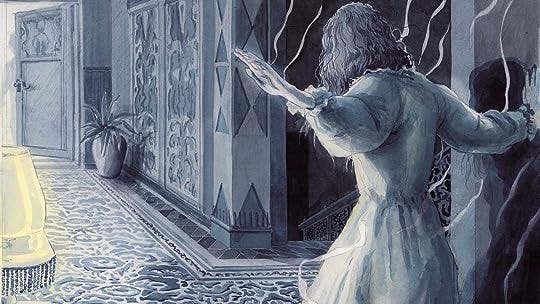Dear Reader,
Let me start by saying horror is not for everyone. Not everyone enjoys films or books with a creepy side. I am not trying to convince anyone they must love scary stories. Rather, I hope a reader might reconsider their opinion of the genre.
I remember the first horror movie I ever saw. I was at a middle school girls sleepover, thrilled I was finally able to watch PG-13 movies. After some debate, we settled on a movie called Killer Clowns. And yes, it was just as awful as it sounds!
The horror genre is much contested in Christian circles, and it is easy to see why. It splinters off into countless sub-genres, many of them excessively gory or with demonic content. I am definitely not endorsing these types of stories (nor do I enjoy them), but most people don’t realize these are not the only kinds of horror stories.
Horror vs. Terror
What is horror exactly? It is a type of story meant to evoke fear, often using shock (jump scares) or other narrative techniques to create suspense. One could delve even further and differentiate between terror and horror. Terror is the dread before seeing something scary; horror is the shock and revulsion from actually seeing the scary thing. What I enjoy about creepy stories is the former. It takes great skill to create a sense of subtle dread, especially with the written word.
Consider this famous opening paragraph from The Haunting of Hill House by Shirley Jackson:
No live organism can continue for long to exist sanely under conditions of absolute reality; even larks and katydids are supposed, by some, to dream. Hill House, not sane, stood by itself against the hills, holding darkness within; it had stood so for eighty years and might stand for eighty more. Within, walls continued upright, bricks met neatly, floors were firm, and doors were sensibly shut; silence lay steadily against the wood and stone of Hill House, and whatever walked there, walked alone.1
Jackson expertly uses word choice to make the house seem alive. There is a sense of ancient solitude about the place, and somehow she makes mundane things like darkness and silence feel completely unsettling.
Gore and jump scares are cheap thrills, surface level and forgettable. Give me a story that examines the darkest parts of human nature, that makes me examine my own soul. Another great example of terror is in the film Get Out. It’s about a young, Black man who is visiting the home of his white girlfriend’s family for the first time. The movie builds dread by showing subtle things that appear just a bit “off,” such as the couple’s ominous car accident with the deer and the Black groundskeeper and housekeeper acting oddly robotic. In fact, the only truly horrific elements (by the definition I shared above) do not appear until the climax. The film also unexpectedly employs comedy to balance out the darkness. It even has a happy ending—which is not common in horror movies. The story examines the insidiousness of racism in modern society, which often manifests in less than obvious ways. It shows how, beneath a veneer of virtue signaling and appreciation of Black American culture, racism still exists. And it is truly terrifying.2
Dealing with Darkness
On an episode of the podcast Believe to See, the hosts discuss the idea that horror is one of the only genres that calls evil evil.3 It’s easy for us as Christians to watch content that, on the surface, seems wholesome, but in reality it shows evil masquerading as good: the glorification of materialism for example. The devil is often disguised as an angel of light.
There is also a temptation for Christians to shy away from content that is dark or sad. However, the Bible doesn’t even do this. Scripture deals with death, vengeance, gore (Ehud, anyone?), and great pain. Real life doesn’t always have a happy ending, and often we face great adversity and even terror.
Catharsis
Aristotle, in his theory of tragedy as a dramatic form, says it creates catharsis in the viewer: a sense of pity and fear that is somehow cleansing. This is similar to the feeling of finally letting out all of your tears; people often refer to this feeling as “cathartic.” I think this response is common when reading or watching horror. Somehow, when we see characters experiencing horror or we feel the terror building, we are cleansed of those emotions. After all, we know it is fiction, and perhaps catharsis helps us get rid of those feelings in ourselves so we see our own lives more clearly.
Discernment
As with any media we consume, when watching or reading horror, we ought to practice discernment. We must consider age appropriateness, personal tolerance levels of fear, background and previous trauma, and our own convictions based on Scripture. Perhaps creepy stories are simply not to your taste. Regardless, judging by the Bible is a good habit.
As a Christian, I see it as my responsibility to balance darkness with hope. One hallmark of horror I don’t like is that it ends badly. There is always some hint the monster wasn’t quite defeated. However, as Christians, we know the dragon was indeed defeated at the cross. Though here on earth we still feel the pangs of the fall, we know we have the ultimate victory in Christ. For this reason, even if I write a story with elements of horror, I always try to write an ending that is—if not happy—then infused with a profound sense of hope.
[Note: If you want to dip your toes into some creepy stories but you’re not sure where to start, why not start with some of the classics: Frankenstein, Dr. Jekyll and Mr. Hyde, short stories by Edgar Allan Poe, or even some Gothic literature like Jane Eyre, Rebecca, or We Have Always Lived in the Castle.]
Join the Conversation
What horror or gothic books/films have you enjoyed? Which ones, as a rule, do you not enjoy?
Jackson, Shirley. The Haunting of Hill House. London: Robinson Publishing, 1987.
Get out. DVD. Universal City, CA: Universal Pictures Home Entertainment, 2017.
Mellema, Matthew. (The Hospitality of Horror). Interviewing Dana Kjeldsen, Believe to See. Podcast audio. February 17, 2022.






I really enjoyed this! Modern horror is a genre I tend to stay away from, but I also love classic gothic fiction (Frankenstein, Dracula, Edgar Allen Poe). I think you articulate why a lot of modern horror is tough for me-it can be excessively gory, explicit, or blur the lines between good and evil. But classic/quality horror doesn’t do that-same with classic detective fiction (my husband is always confused by the fact that I can’t handle horror movies but find Sherlock Holmes cozy). I also really liked your point that seemingly calm/light watches can be more dangerous for us than we think-I constantly am discerning where to draw the line with entertainment that I know is trying to promote moral/intellectual beliefs opposed to mine
I'm usually too creeped out by most horror films but I really appreciated "Nope" and some of M. Night Shyamalan's work ("Old" for instance). The only truly horrifying film I've ever seen, though, is "Requiem for a Dream," because what it shows is *really happening*. Yet despite the abjectness at that film's ending, it excellently portrays the consequences of bad decisions; its moral sense remains true.
Your point about balancing darkness and hope was well put—that's probably the reason I don't care for much of Lovecraft's stories. In them, the monsters remain undefeated; the stories are deliberately written to promote a sense of helplessness and despair, which are qualities that simply don't align with my Christian view of the world.